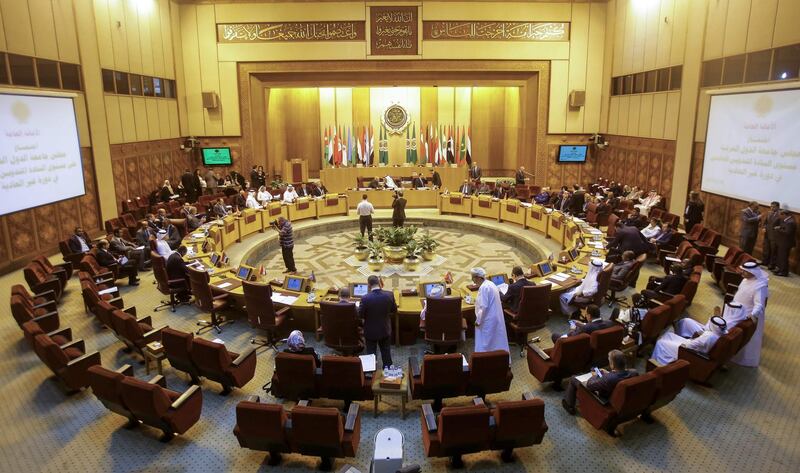As Nato leaders prepare for the alliance’s summit in Brussels next month, concerns about American President Donald Trump are being voiced by diplomats behind closed doors. Mr Trump has been vocal about Nato members’ shortfalls, particularly when it comes to defence budgets. Although all 29 Nato members committed to 2 per cent expenditure of their GDP on defence, only eight member states have turned their pledge into action. American frustration at covering close to 22 per cent of Nato spending is not new; however, Mr Trump’s public criticisms are.
Multilateral diplomacy relies on public statements of unity and private negotiations. Only rarely do criticisms rise to the surface to ensure the endurance of alliances. Nato is one of the world’s most successful examples of multilateral organisations, with collective action resting on unanimity and long-term diplomatic ties. But as it faces internal pressure from Mr Trump and the external ambitions of Russia, questions abound about the future of multilateral action.
The diplomatic fallout from the G7 summit earlier this month, including America’s rescinding of the final communique, cast light once again on the challenges facing multilateral action. A fair question to ask is whether it actually matters if multilateralism fails? Beyond the diplomatic hassle of figuring out how countries could work on collective issues like migration or oil prices, would matters get worse without a multilateral approach? The answer is yes. It matters – and things can always get worse.
Multilateral action based on compromise and a rejection of “zero-sum games” has led to important improvements on the world stage, including the banning of nuclear weapons and protection of intellectual property through patents. International agreements like the Geneva conventions have been undermined in recent wars but remain the globally recognised reference point for all nation states.
Long-established diplomatic practices have served an important purpose for the security of nations. But there can be no denying the need for improvements. For example, while Mr Trump’s method of calling out Nato member countries publicly might be unorthodox, no one can deny that members have failed to meet their obligations.
Another example can be determined from the accusations levelled at the International Criminal Court in its bias against African leaders while ignoring other regimes. And most famously, UN Security Council resolution 242, passed in 1967 to end the occupation of Palestine, has yet to be implemented.
Until recently, international summits would result in straightforward and, at times, dull final communiques. Journalists would be frantically working on their sources, hoping to get some colour from the meetings.
In the world of Twitter and Mr Trump, all that has changed. Today most journalists try to keep readers’ attention on the substantive issues from these meetings instead of tweets and public outbursts.
Understanding how America’s position in the world is changing is vital and will impact international relations for years to come. However, the triviality of some of the comments, that are often not relevant beyond a couple of news cycles, should not detract from the realities of diplomacy in the modern era.
The concern is that the current architecture of multilateralism has been repositioned to manage crises rather than resolve them. As damage limitation takes up more and more time of multilateral action, including in areas of war or climate change, proposals for large-scale solutions are becoming more scarce.
With more regimes acting with impunity, countries that ally themselves with a permanent member of the UN Security Council have an umbrella to act freely, as that ally can veto any international rebuke. This is most discernible with Israel and its alliance with the United States, and more recently with Syria and its Russian alliance. While the exercise of the veto by permanent members is by no means new, its more frequent and obvious use is troubling.
Here in the Arab world, there is a need for new thinking and new approaches to solve old wars – and to prevent new ones. While the occupation of Palestine and the Syrian war need to be resolved, water wars could be on the horizon. All of these conflicts have a regional and global impact and need a multilateral approach that isn’t confined to state actors.
Regional governance failures have added to the woes of multilateralism in the region. The Arab League has not delivered on mediation promises, nor is it alone in this failure.
Long hailed as the example of successful regional co-operation, and even getting a Nobel Prize for its existence and survival, the European Union struggles with the fallout from Brexit. There is a global trend that must be reckoned with.
Last week UN secretary general Antonio Guterres warned that “power relations are less clear.. the world is less clear… with very weak multilateral governance and less and less respect for the rule of law”. Mr Guterres’ warning from Oslo was stark and a reminder that even the head of the greatest instrument of multilateralism cannot tackle this challenge alone. One of the endemic features of multilateral work is that agreements often end up taking the lowest common denominator option to ensure all parties sign up to it.
Multilateral fora cannot be a fig leaf for failed collective action. However, they are important vehicles for diplomacy and a search for solutions. Fraught compromises and working through linguistic loopholes alone do not represent success but can help steward countries through challenges.
While Nato is not a global alliance, it is a vital fixture in the architecture of global security. Next month its leaders will have to ensure multilateralism isn’t held hostage to statements – whether they are bland communiques or dramatic tweets.





